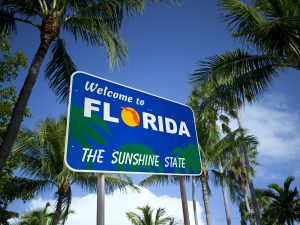
In January, we were among the first to post on the insurance implications of coronavirus. Since then, the epidemic has landed on our shores, dragged down the stock market, and become a political football. It has affected supply chains originating in China, with significant results for companies like Apple. And it threatens business continuity in the U.S. It is important to remember that the threat to the economic cycle does not originate from financial forces like a tightening of credit, but in nuts-and-bolts workings of the manufacturing and service economy, where both bottlenecks in supply and a pullback in demand threaten markets. Some of these losses are insurable. This post reviews recent coverage developments and notes practical coverage considerations that companies might overlook.
 Policyholder Pulse
Policyholder Pulse



 There has been a drumbeat of
There has been a drumbeat of  Hub City Enterprises Inc. and Wall St. Enterprises of Orlando Inc. ran an event called “Rum Fest 2017” in Orlando, Fla. Sounds like fun, doesn’t it? But one of the partygoers, who apparently paid to attend the festival, was not amused. In the middle of the party, Robert Hunt saw an oversized beach ball barreling towards his head. When he reached out to deflect the projectile, he ended up suffering injuries to the ligaments in his arms. Mr. Hunt sued Hub City and Wall St. Enterprises, who tendered the claim to Princeton Excess and Surplus Lines Insurance Co., their liability carrier, for a defense. Princeton initially assumed defense of the claim, but it soon repaired to federal court seeking a declaration that it had no duty to defend the suit. In
Hub City Enterprises Inc. and Wall St. Enterprises of Orlando Inc. ran an event called “Rum Fest 2017” in Orlando, Fla. Sounds like fun, doesn’t it? But one of the partygoers, who apparently paid to attend the festival, was not amused. In the middle of the party, Robert Hunt saw an oversized beach ball barreling towards his head. When he reached out to deflect the projectile, he ended up suffering injuries to the ligaments in his arms. Mr. Hunt sued Hub City and Wall St. Enterprises, who tendered the claim to Princeton Excess and Surplus Lines Insurance Co., their liability carrier, for a defense. Princeton initially assumed defense of the claim, but it soon repaired to federal court seeking a declaration that it had no duty to defend the suit. In  Imagine your organization has suffered significant property damage and interruption to your business as a result. The cause could be anything—a natural disaster, severe mechanical breakdown or a cyberattack. You notify your property insurance carrier and adjust the claim, submitting calculations of your losses based on the policy’s coverages and other terms. But in response, your carrier only agrees to pay a fraction of the losses, claiming that otherwise your organization would be better off than before the damage—“unjustly enriched”—and that insurance is not meant for gain, but only to put the insured in the position it would have been without the damage.
Imagine your organization has suffered significant property damage and interruption to your business as a result. The cause could be anything—a natural disaster, severe mechanical breakdown or a cyberattack. You notify your property insurance carrier and adjust the claim, submitting calculations of your losses based on the policy’s coverages and other terms. But in response, your carrier only agrees to pay a fraction of the losses, claiming that otherwise your organization would be better off than before the damage—“unjustly enriched”—and that insurance is not meant for gain, but only to put the insured in the position it would have been without the damage.
 Pennsylvania recently issued a ruling in an insurance case that, like Flint, related to alleged contamination in drinking water stemming from corroded pipes. The decision rejects two insurers’ attempts to avoid coverage and serves as a good reminder of some fundamental insurance law principles—the duty to defend is broad, ambiguous policy language usually is construed against the insurer, and policies should be interpreted in favor of their purpose to provide coverage. It is also a reminder that the pollution exclusion is not nearly as all-encompassing as insurers like to think it is.
Pennsylvania recently issued a ruling in an insurance case that, like Flint, related to alleged contamination in drinking water stemming from corroded pipes. The decision rejects two insurers’ attempts to avoid coverage and serves as a good reminder of some fundamental insurance law principles—the duty to defend is broad, ambiguous policy language usually is construed against the insurer, and policies should be interpreted in favor of their purpose to provide coverage. It is also a reminder that the pollution exclusion is not nearly as all-encompassing as insurers like to think it is.

 any good, you give the restaurant a date, time, and number of people. So why should insurers be able to issue reservations of rights where they quote half the policy and say they may deny coverage at some time, based on some unspecified provision? The South Carolina Supreme Court was presented with that question and decided that insurers need to provide greater specificity or risk losing their reservations completely.
any good, you give the restaurant a date, time, and number of people. So why should insurers be able to issue reservations of rights where they quote half the policy and say they may deny coverage at some time, based on some unspecified provision? The South Carolina Supreme Court was presented with that question and decided that insurers need to provide greater specificity or risk losing their reservations completely.